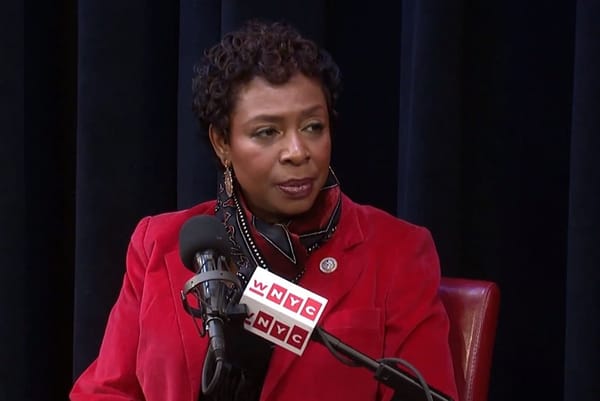John Harrington: The FCC’s Proposed E-Rate Bidding Portal Expands Federal Power, Not Local Decision Makers
This shift away from local autonomy for procurement would be the most radical change to the program since its inception.

The mission of the E-rate program is to help connect students and library patrons to the internet and provide the support for goods and services necessary to make that happen.
Now, at a time in history when online connections are more important than ever, government agencies should be empowering local leaders, not interfering with their decisions.
Instead, on December 16, 2021, the Federal Communications Commission announced plans to take away local procurement control from schools and libraries participating in the program with its proposed E-rate bidding portal. Those who do not comply with the proposed mandate will lose vital financial support, reducing the internet connections available for students and library patrons.
Schools and libraries cannot afford to lose their internet access, and local staff does not have time to learn a new, duplicative bidding system. This would be the most radical change to the program I have witnessed since its inception in 1997.
FCC’s proposed E-rate bidding portal
The sweeping overhaul proposed by the FCC to the E-rate funding program would nationalize internet procurement for all K-12 schools and libraries that participate.
The proposed rulemaking would establish one centralized bidding system managed by the Universal Service Administrative Company. Currently, service providers submit bids directly to applicants for E-rate supported products and services.
I have several areas of concern with the proposal, including:
- USAC is not an authorized procurement agent.
- Local officials use other request for proposal systems 99.5% of the time.
- Procurement requires judgment; local systems exist to manage expectations, protests, bid openings and more.
- USAC is experienced at reviewing applications but inexperienced at managing the bidding process.
In 2014, FCC determined not to upload all E-rate bids. Why change now?
In July 2014, the FCC overhauled the E-rate program, emphasizing the importance of affordable internet access, cost-effective purchasing decisions and a more effective application process for schools and libraries.
A key strategy in achieving these goals was enhanced public access to information. The FCC called for a new online system for gathering data and publishing it all online, concluding that “increasing pricing transparency is likely to increase competition and drive down prices.”
Ultimately, the FCC decided that requiring all bids to be uploaded was unnecessary and could even be counterproductive to the program’s health.
So instead, the FCC struck a balance between transparency and simplification: only the prices for winning bids would be published, but applicants would still be required to produce copies of all bids, including the losing bids, when requested.
One must wonder, if increasing the burden and complexity of the E-rate program was not a good idea when it was modernized in 2014, what has changed to make it a good idea now?
Current E-rate rules are working
The Funds For Learning 2021 E-rate Trends Report found that 97% of respondents believe that more students or library patrons are connected because of the current E-rate program. 68% of respondents agreed that the competitive bidding process lowered costs for services.
The E-rate program is a vital lifeline for every school district in the country. Schools and libraries depend on the E-rate program for their unique connectivity needs.
This proposal would create a one-size-fits-all system, while we believe that procurement decisions are best made at the local level.
I urge the commission not to implement the proposed E-rate bidding portal.
Rather than federalizing the procurement of E-rate eligible goods and services, the public would be better served if the commission would focus its efforts on updating the existing E-rate eligible services list and instructing USAC to improve the E-rate Productivity Center online application portal.
The FCC has extended the Comment deadline for the proposal to April 27, 2022, with the deadline for filing Reply Comments now May 27, 2022. If you agree that local purchasing decisions should be managed at the local level, please sign this petition, and let the FCC know.
John Harrington is the CEO of Funds For Learning, the nation’s leading E-rate compliance services firm that helps schools receive federal funding for student Internet access and communications. Since 1997, Mr. Harrington has supported groups in all 50 U.S. states, helping schools apply for more than $1 billion in assistance through the Universal Service Funding program. This piece is exclusive to Broadband Breakfast.
Broadband Breakfast accepts commentary from informed observers of the broadband scene. Please send pieces to commentary@breakfast.media. The views expressed in Expert Opinion pieces do not necessarily reflect the views of Broadband Breakfast and Breakfast Media LLC.








